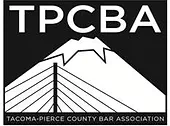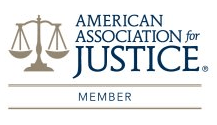Work-Related Personal Injuries: How to Determine if You Can Sue Your Employer
July 20, 2023
Work-related personal injuries can be physically, emotionally, and financially devastating. While workers’ compensation is designed to provide medical benefits and wage replacement benefits for injured employees, there are instances when it might not be enough to cover all the damages. In such cases, you may wonder if you have the right to sue your employer. This article will delve into the factors that determine whether you can sue your employer for a work-related personal injury, focusing on the legal landscape in Washington.
I. Understanding Workers’ Compensation:
Workers’ compensation is a state-mandated insurance program that provides benefits to employees who suffer work-related injuries or illnesses. In Washington, employers are required to carry workers’ compensation insurance to cover their employees in case of accidents on the job. When an employee is injured, workers’ compensation typically provides medical treatment, temporary disability benefits, permanent disability benefits, and vocational rehabilitation, if necessary.
II. Exclusive Remedy Rule:
The exclusive remedy rule is a critical aspect of workers’ compensation laws. It states that in most cases, workers’ compensation benefits are the sole remedy available to an injured worker against their employer. This means that in exchange for receiving workers’ compensation benefits, the employee gives up the right to sue their employer for additional damages, including pain and suffering. The exclusive remedy provision is designed to protect employers from costly lawsuits while ensuring that injured employees receive timely and essential benefits.
III. Exceptions to the Exclusive Remedy Rule:
Despite the exclusive remedy rule, there are certain situations where an employee may have grounds to sue their employer outside the workers’ compensation system. These exceptions are rare but essential to understand if you believe your case might fall under one of these categories:
- Intentional Tort: If your employer intentionally caused your injury or engaged in conduct with the knowledge that it was substantially certain to cause harm, you may be able to pursue a personal injury lawsuit. Proving an intentional tort can be challenging, as it requires evidence of the employer’s intent to harm or knowledge of the dangerous situation.
- Third-Party Liability: If a third party, such as a contractor, subcontractor, defective equipment, or equipment manufacturer, caused your injury while you were on the job, you might have a valid third-party claim against that party. This is not a claim against your employer, but a separate legal action against the responsible third party.
- Lack of Workers’ Compensation Insurance by the Employer: In Washington, if your employer does not carry the necessary workers’ compensation insurance, you may be able to sue them in civil court for damages.
IV. Negligence and Gross Negligence:
For work-related personal injury lawsuits to be successful, the injured employee must demonstrate that the employer’s negligence or gross negligence caused the accident. Negligence refers to the failure to take reasonable care to prevent foreseeable harm to employees. Gross negligence, on the other hand, is a more severe form of negligence characterized by a reckless disregard for employee safety.
V. Employer’s Duty of Care:
Employers have a legal duty to provide a safe work environment and take reasonable steps to prevent workplace injuries. This includes adhering to safety regulations, providing adequate training, maintaining equipment, and implementing safety protocols. If an employer breaches this duty of care and it leads to an employee’s injury, they may be held liable in court.
VI. Statute of Limitations for Workers’ Compensation Claims:
In Washington, the statute of limitations for a workers’ compensation claim is one year from when the injury happened. This means that injured employees must file their claim within one year of the accident to be eligible for workers’ compensation benefits.
VII. Personal Injury Statute of Limitations:
Apart from workers’ compensation claims, if you are considering suing your employer for a work-related personal injury, you should be aware of the personal injury statute of limitations in Washington State. For personal injury claims, including those against employers for negligence or gross negligence, the statute of limitations is typically three years from the date of the injury. This means that you must initiate legal proceedings within three years of the accident to pursue a personal injury claim.
VIII. Seeking Legal Counsel:
Determining whether you have grounds to sue your employer for a work-related personal injury can be complex. Consulting with a reputable and knowledgeable personal injury attorney is crucial to understanding your rights, assessing your case, and exploring potential legal options. An experienced attorney will evaluate the circumstances of your injury, gather evidence, and navigate the legal process on your behalf.
Contact Smith Duran Law Today for a Free Consultation About Your Work Injury Case
If you’ve been injured at work or suffered a personal injury in Washington State, Smith Duran Law is here to fight for your rights. Our experienced team of dedicated attorneys understands the complexities of workplace injury cases and personal injury claims, and we are committed to helping you seek the justice and compensation you deserve.
With a deep understanding of the local legal landscape and a track record of successful outcomes, Smith Duran Law is the trusted ally you need in your corner. We will tirelessly advocate for your best interests, whether it’s negotiating fair workers’ compensation benefits or pursuing a personal injury lawsuit against a negligent employer.
Your well-being is our top priority, and we believe that everyone deserves access to top-notch legal representation. At Smith Duran Law, we offer personalized attention and compassionate support throughout every step of your legal journey. Don’t wait to assert your rights and secure the compensation you are entitled to. Contact us today for a free consultation, and let us help you discover justice.
Workers’ Compensation Lawyers
The Department of Labor and Industries manages claims for injuries at work. You are entitled to money for lost wages, medical treatment, vocational retraining, loss of body function, and in some cases a pension.
LEARN MOREPersonal Injury Attorney
If your injury was caused by someone other than a co‑worker, an auto accident, or defective equipment, you may be entitled to additional compensation. Our personal injury attorney in Tacoma will evaluate your case.
LEARN MORE








